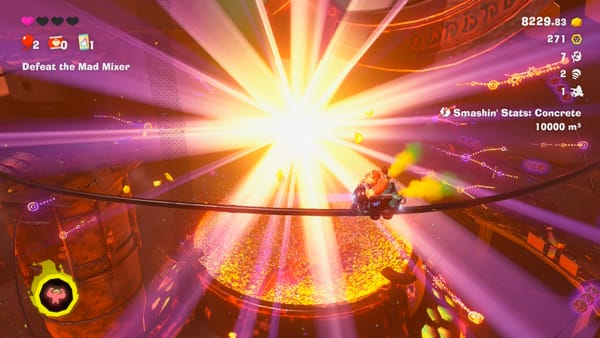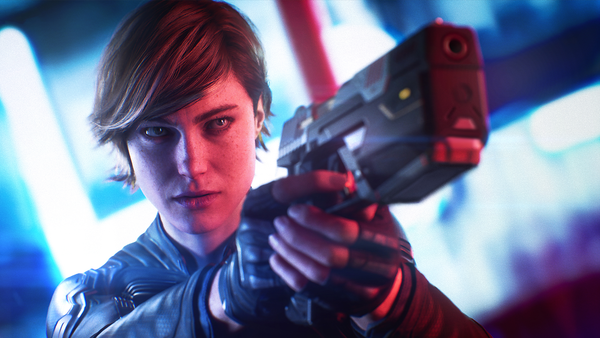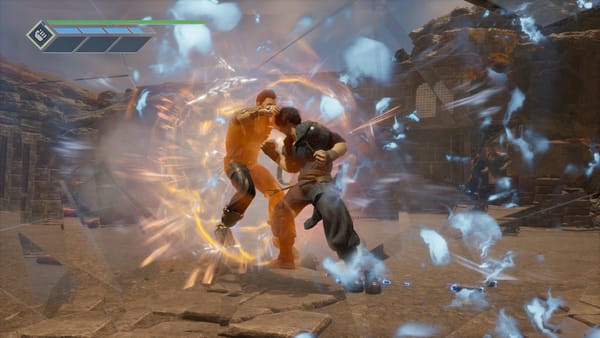#94: Sale of the century
If NFTs really are the future of games, you'd think their proponents would be a little better at explaining why. In the meantime, here's another disaster.
[Thanks for reading Hit Points! If this is your first time, then a hearty welcome to you. If you enjoy today’s edition, note that you can sign up for free to get this thrice-weekly look at the latest goings on in the game industry sent straight to your inbox, and in the process earn my eternal adoration and respect.]
To follow the game industry is to be keenly aware of the importance, and prominence, of PR and marketing. They are vital, in a business that runs on the fuel of hype, in shaping how a game, firm, or technology is seen and understood by the world. This is far from unique to games, of course. Companies of all kinds spend a ton on this stuff — and this is especially true for products or concepts that people are sceptical about, or suspicious of, or outright hostile to. The US tobacco industry was, only a few years ago, spending almost a million dollars an hour on marketing.
Since we know that the game industry thinks a lot about this stuff, we should therefore be able to assume that any company making a move on the dreaded buzzwords du jour — NFTs, metaverse, blockchain, play-to-earn, web 3, there’ll be another one along in a minute I’m sure — will have leant heavily on their PR and marketing folks. There is, after all, a tremendous degree of suspicion around this stuff at the moment. They’ll have spent days locked away in meeting rooms, polishing and perfecting how to to communicate their bold vision to the world before they actually start doing it.
That makes sense, doesn’t it? It sounds like a thing that, were you in a similar position, you would probably do. I think I would, anyway, but then I am painfully aware of my own limitations, and forever conscious of making a tit of myself. Sadly, neither of these qualities are apparent in the game companies that have hitherto announced a move into NFTs.
This week, Zynga’s VP of blockchain gaming Matt Wolf gave an interview to Axios about the company’s nascent NFT plans — and reader, I think this might be the dumbest thing that I have heard so far about NFTs. This Wolf has huffed, and he has puffed, and he has absolutely shat the bed. His error, while fatal, is devastatingly simple: he has stepped up to talk about a wildly contentious issue, and told the truth. He has said the quiet parts out loud. He has broken what I imagine is the first rule in the Big Book Of Marketing And PR, and then set said tome on fire.
Wolf was asked about the target audience for Zynga’s blockchain games, the first of which is set to launch this year (though whether Wolf will be in post to see it is now, I imagine, a matter of some debate). “When they enter into one of these products,” he said, “they come at it from an investor, or a whale, point of view and are interested in specific elements, including yield. […] We don’t want to assume that they want a super, super-deep gameplay experience.”
Firstly, I have until now never heard a videogame professional openly court whales, the label given to the tiny number of players of f2p titles who spend heavily on in-app purchases. I mean, I’m sure that internally, when you’re surrounded by similarly minded colleagues and there’s no tape running, whales are spoken of with great frequency, and no little reverence. I expect they are in many quarters worshipped as gods. But you are not supposed to admit, in public, that you are making a game that is specifically designed for high rollers, particularly when the speculative air around NFTs frames the whole endeavour as high-stakes gambling. That’s a bit problematic, I think. You probably shouldn’t say that to the media.
Next up: “interested in specific elements, including yield.” This is a very troubling choice of words. Perhaps even a dangerous one. Allow me briefly to quote this, in which the multinational law firm Latham & Watkins talks about the regulatory perils of NFTs: “Issuers are advised to avoid marketing NFTs as an investment that can reward holders with appreciation, profit, or dividends.” I might also quickly point to the case of Kik, a messaging service sued for $100m by the Securities and Exchange Commission in 2019 after it held an initial coin offering to raise capital. The SEC’s problem was not the token itself, but the way Kik’s marketing presented said token as something on which investors could expect a profit, which inadvertently classed it as a security. Just thought I’d mention that. (The SEC won the case in 2020.)
Perhaps Wolf has danced around the phrasing here with just enough elegance to get away with it. But I cannot imagine he is much of a dancer, given that he spends this interview with his foot in his mouth. And the fact that I have never seen a gaming executive talk about game NFTs in this way suggests he is flying pretty close to the sun here, which raises further foot-related concerns. Either way, I imagine the directors of marketing and PR at Zynga woke up yesterday wishing they had tattooed ‘don’t mention yield’ on the inside of Wolf’s eyelids, just to make sure he realised the importance of it.
Lastly: “We don’t want to assume that they want a super, super-deep gameplay experience.” Obviously the Zynga jokes write themselves here, but this is particularly disappointing, I think. It is just the ultimate kicker, the perfect summation of the interview as a whole, and of NFT-powered games more broadly. This has nothing to do with games at all, does it? Our industry, our artform, our beloved hobby, is just the next step on the road for these clowns. The freshly minted head of blockchain gaming at a multibillion-dollar game developer has openly admitted that he is making games for people who have lots of money, are motivated by greed, and have essentially no interest in games. Sheesh.
The weird thing is that, clearly, a lot of time and money has been spent on the framing and focus of blockchain technology. Advocates present NFTs as being about ownership and community, rather than yield, providing essential cover from regulators. They have access to a seemingly infinite conveyor belt of buzzwords, activating a new one the moment the current one becomes toxic. Using digital art as NFTs’ introductory vehicle was a stroke of marketing genius: art, however ugly, cannot be dismissed because it is subjective, and the trope of the struggling artist makes detractors seem unkind. And whoever first suggested that the developers of play-to-earn success story Axie Infinity focus their efforts on the Philippines, a country with one of the lowest average salaries on the planet, should be canonised by the cryptobro set.
So, yes, marketing is very much at top of mind for a lot of companies in the blockchain business. But if there’s one positive thing we can take from Zynga — and Ubisoft, Square Enix, Team 17, and whoever’s turn it is next week — making such a tremendous mess of their NFT marketing, it’s that the game industry hasn’t given anywhere near enough thought to this stuff. That, if we’re lucky, will be its death knell. Fingers crossed, I suppose.
MORE!
- While we’re on the subject, here’s Bandai Namco spectacularly failing to explain why it is spending $130m on some sort of metaverse initiative. “We are anticipating virtual spaces that will enable customers to enjoy a wide range of entertainment on an IP axis, as well as frameworks that leverage Bandai Namco’s distinctive strengths to fuse physical products and venues with digital elements.” Fuck about.
- Eurogamer’s investigation of Team 17’s working culture should be a further cautionary tale for game companies contemplating a pivot towards NFTs. Upset your staff too much, and you risk sending them running to the press to air their grievances — and your dirty laundry.
- Microsoft has also said the quiet part out loud this week, committing to a far more open future for its download stores on both PC and console and admitting the move is in part designed to persuade antitrust regulators to wave through the Activision Blizzard deal. The firm also committed to continuing to release Call Of Duty games on PlayStation even after current agreements run out, and acknowledged its interest in releasing games for Switch.
- However, Nvidia’s proposed $40bn acquisition of UK chipmaker Arm has collapsed amid heavy regulatory scrutiny in the US, EU and Asia. Arm owner SoftBank plans to take the company public instead.
- With Game Pass rewriting the rules for how games are sold and played, Microsoft these days uses player count as the defining measure of success (yesterday it revealed that Grounded has been played by 10m people). Phil Spencer says he wants to make Starfield “the most-played Todd Howard game ever”, a noble ambition that seems unlikely given that Starfield will be Game Pass exclusive, while Skyrim has been released on every available platform approximately 800 times. Still, nice to have goals, isn’t it.
- Saudi Arabia’s Public Investment Fund has spent $1bn on stakes of more than 5% in Capcom and Nexon.
- Sony has trumpeted a major breakthrough in machine learning, dubbed GT Sophy. An AI was able to outperform, in realtime, some of the finest Gran Turismo players on the planet, and could play the game simultaneously across 20 consoles.
- I assume you have all seen Wednesday’s Nintendo Direct, about which I am rather conflicted. I personally found the onslaught of remakes quite wearying — but many of them are games that have never had a proper western release, which I suppose is fair enough. One friend was absolutely cock-a-hoop about the Front Mission remake, for instance. My personal standout was news of classic tracks coming to Mario Kart 8; I think this should’ve been the business model for years now, but better late than never.
- Gary Bowser, leader of the hacking group Team Xecuter, has been jailed for 40 months by a US court for circumventing the security protections of Nintendo consoles, and distributing devices to let others do the same.
Cor, that was a long one. Sorry. A belated welcome to the influx of new readers, arriving courtesy of the modest virality of Monday’s edition (which is now the most-viewed Hit Points to date, though we’re breaking that record every couple of weeks at the moment). I’m afraid that yet another bout of child sickness has put the next instalment of Max HP, the subscriber-exclusive interview series, on the back burner; we’ll try again next week. Please forgive any typos in today’s edition for the same reason. It’s been pretty difficult to concentrate.
In the meantime, some news: the Max HP profile of the wonderful Tracy Fullerton will be published on Eurogamer this Sunday. In a bid to help raise awareness of the newsletter and hopefully grow its audience, EG will be republishing select Hit Points bangers once a month for a little while (mostly non-paywalled stuff, but we agreed to start with what I feel is the best thing Hit Points has yet produced). If you felt like giving it a wee share when it’s up, that’d be lovely. And if it convinces you to sign up for a paid subscription — using the buttons below, say — that would be lovelier still. Have an excellent weekend, and I’ll see you on the flip.





